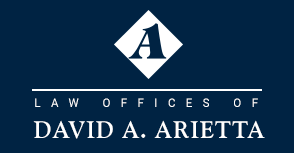Frequently Asked Questions about the Estate Planning Process
What is Estate Planning?
Estate Planning is a process by which an individual designs a strategy and executes a will, trust agreement, or other documents to provide for the administration of his or her assets upon his or her incapacity or death. Tax planning and general financial planning can be part of this process.
What is included in an Estate Plan?
An Estate Plan typically consists of four documents: Revocable Living Trust, Pourover Will, Durable Power of Attorney, and Advance Health Care Directive. Together, the Trust and Will detail how and to whom you would like your estate distributed when you die, and who you would like to care for your children (and their finances) should something happen to you.
What are Trusts?
A Trust is a legal instrument that identifies who created the trust (the “settlor” or “trustor”), the assets that will be held in trust, the person responsible for managing and administering the trust assets (the “trustee”), the purpose of the trust and the manner and conditions under which distribution of the trust assets may be made.
Why do I need a Trust?
The main purpose of a trust is to streamline the distribution of your estate and avoid probate. In the event of your death, a will simply
What are the advantages of a trust?
When you establish a trust you retain control and flexibility over how the assets in the trust are managed and distributed. It provides instructions on what will happen to your assets when you die plus provisions which control what will happen in the event that you become physically or mentally incapacitated. There are other advantages of a trust, such as protecting your privacy, minimizing estate taxes, and making a proper plan to deal with minor children. For instance, you may have a trust set up upon your death to provide for the financial and educational needs of your minor children and terminate on a certain age (age 24 or 30 for example). You can select a trustee who would manage their share of the estate and give them the necessary financial support without allowing them to squander their inheritance.
What is the difference between revocable and irrevocable?
Trusts are revocable or irrevocable. A revocable living trust means that the settlor retains ownership and control of the assets placed into the trust during his or her lifetime. The settlor has the right to withdraw or distribute the money at any time. The settlor also has the right to amend or terminate the trust at any time. The settlor or maker of the trust takes on several roles all at the same time: being the trustee of the trust who controls and administers the trust assets and the current beneficiary who receives distributions from the trust. An irrevocable trust means that the settlor has voluntarily forfeited control or ownership of the assets held in trust. These are often set up for estate and gift tax reasons.
What is Administration of the trust?
The process during which the trustee, executor or personal representative collects the decedent’s assets, pays debts and
What does a Trustee do?
The individual, bank or trust company designated to hold and administer trust property (also generally referred to as a “fiduciary”). The term usually includes the initial trustee and successor trustees. A trustee has the duty to act in the best interests of the trust and its beneficiaries and in accordance with the terms of the trust instrument. A trustee must act personally (unless delegation is expressly permitted in the trust instrument), with the exception of certain administrative functions.
What is a Will?
A writing specifying the beneficiaries who are to inherit the testator’s assets and naming a representative to administer the estate and be responsible for distributing the assets to the beneficiaries.
Who is a Beneficiary?
A person who will receive property from an estate or trust.
Who is an Executor?
A person named in a will and appointed by the court to carry out the terms of the will and to administer the decedent’s estate. May also be called a personal representative.
What is a Durable Power of Attorney?
A Durable Power of Attorney allows someone else to manage your finances should you become incapacitated. With a valid power of attorney, your agent will be legally permitted to take care of important matters for you — for example, paying your bills and managing your investments.
What is an Advance Healthcare Directive?
An “Advance health care directive” is also known as a power of attorney for health care. The primary goal of the Advance Healthcare Directive is to authorize an agent to make healthcare decisions for the principal, or person executing the document.
When does an Advance Healthcare Directive typically become effective?
An Advance Healthcare Directive can grant an agent power to act on behalf of the principal at any time, including immediately. Typically, the document becomes effective only “upon the incapacity of the principal.” In most cases, an Advance Healthcare Directive will become effective when the principal (
